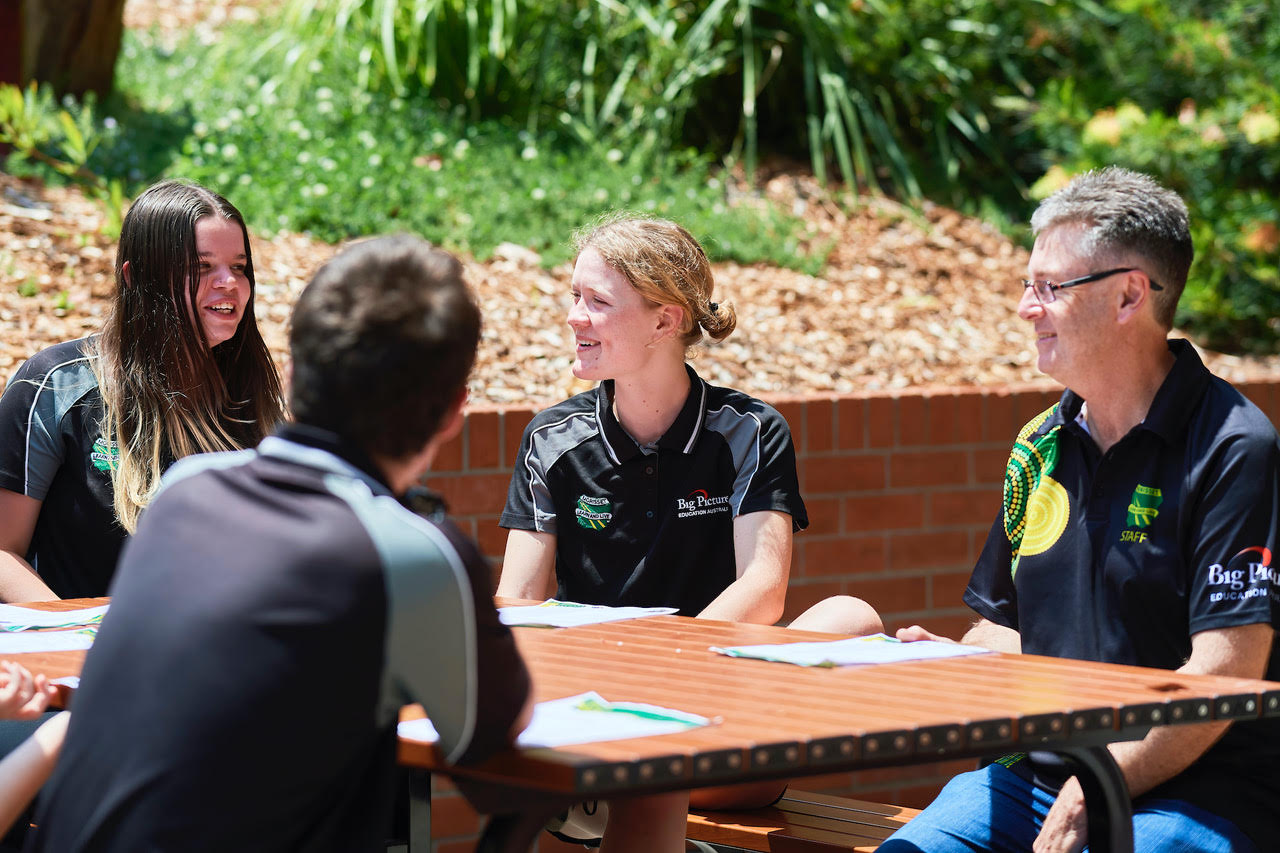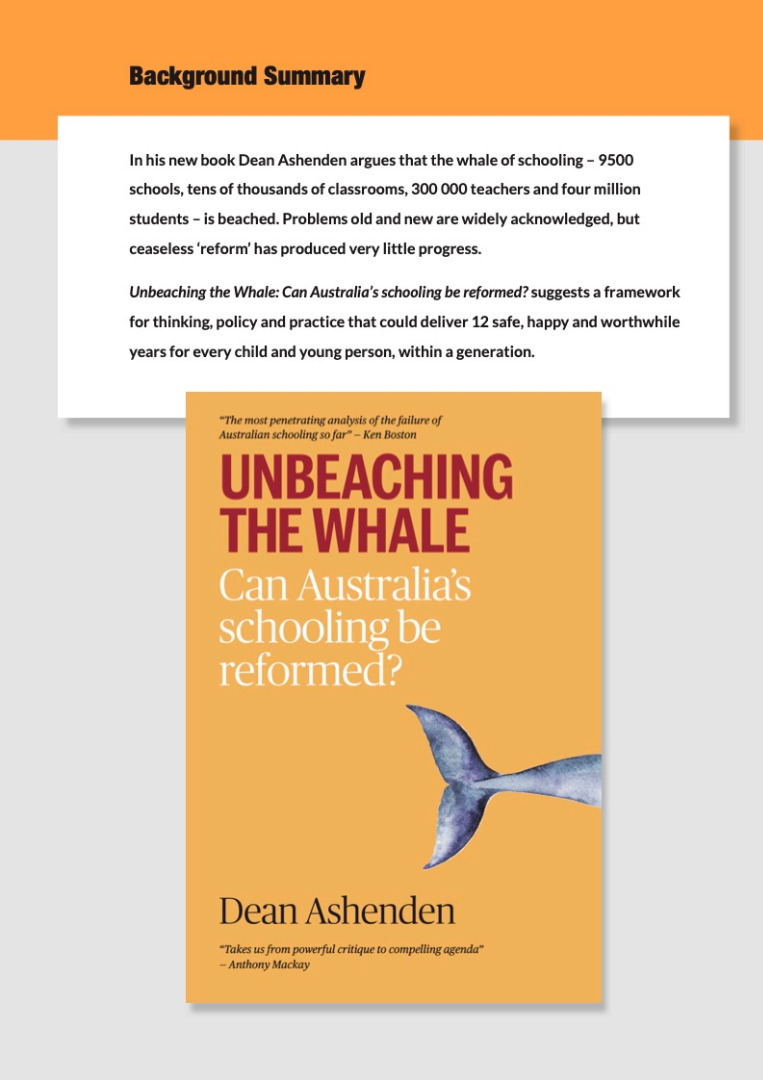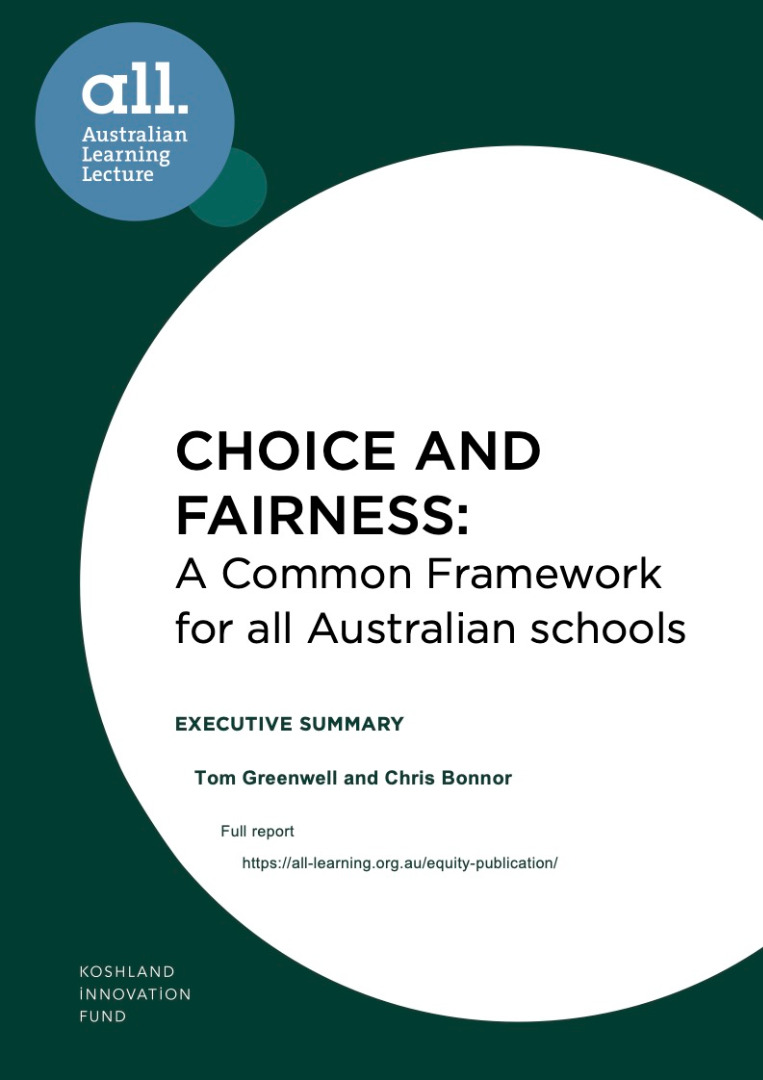

Why now?
Multiple governments have put national school reform on the agenda, yet fundamental issues still remain.
We need your opinion
- What changes are needed to schooling in Australia?
- What are the long term strategy actions we should be working towards?
- How can we propel towards reform that delivers safe, fulfilling, engaging and inclusive education for every student, within a generation?
- How can work, workplaces and learning be reorganised for teachers and students?
- Can we achieve governance that supports schools and teachers, and trusts them to do their job?
The Forum will combine discussion and debate with input from leading thinkers, including:
- Dean Ashenden, author of Unbeaching the Whale: Can Australia's schooling be reformed?
- Verity Firth AM, Vice President, Societal Impact, Equity & Engagement, UNSW
- Chris Bonnor AM, author (with Tom Greenwell) of Choice and Fairness: A Common Framework for All Australian Schools
And forum facilitator:
Viv White, AM – CEO & Co-Founder of Big Picture Learning Australia
Read more about the speakers in this document.
Students from Big Picture Learning schools
A network of 45 secondary schools across Australia, will report on their experience of comprehensively reorganised schools and learning communities. Their senior students undertake a robust non-ATAR school credential (known as the International Big Picture Learning Credential) accepted by 17 universities around Australia and warranted by the University of Melbourne.
Forum schedule
Envisioning new ways of organising public schooling
Schooling as it exists is no longer fit for purpose for a growing range of young people. Too many of our young people feel that they don’t belong, that they can’t learn in the ways they are expected to in school, that the curriculum does not engage their interest, or that the world beckons but school is making them wait until a certain age before they can explore it. Their wellbeing and sense of fulfilment is in decline and many do not make it to the mandated Year 12 finishing line.
Yet as a society, we never question whether the way we ‘do’ school is actually the problem.
What if we asked:
- Do we need multiple subjects, teachers and classrooms in a day? Does this fracturing of the day assist anyone to learn?
- Is there such a thing as canons of knowledge that all young people need to learn at the same time and pace? Or are there now many ways for young people to access skills and knowledge as and when they need it?
- What if young people were allowed to shape and drive their own learning around things that interest them?
- What if we asked students how they learn best and what would make them want to come to school each day?
- Should all education be a competition for a few top ATAR rankings while the achievements of other young people are assumed to be mediocre?
- What if teachers could really feel that they were making a difference to young people’s lives, rather than being a repository of content and assessments? Would that reduce their burn-out rates?
Register today to join the discussion.
Background reading
John Niland Scientia Building (G19)
Kensington, NSW 2052
Australia



